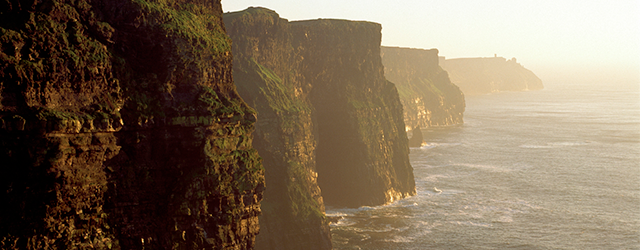By Peter Makem
Like the snowdrop teething on the gums of January, like the clock of May awakening the corncrake, the lupin open to July’s arrival, the oak sapling leafing its first June, like the green bud forming on the bare tree, as the breath of March arouses the crocus, so Ireland began to move out of its captivity and tip toe into a measure of old normality.
It is now two full months since St. Patrick’s Day when the sensational news announced like a thunder rattle that all parades were off, notably the huge week-long and ever expanding Annual Dublin Extravaganza. This seemed simply impossible at the time, but it happened as if by some invisible force as one by one all the institutions of the land went underground.
In my last piece I detailed all this and how both South and North initially struggled to face up to the coronavirus assault and finally, despite over 2,000 deaths on the island of Ireland, and despite a fair bit of orange and green emphasis, enough solidarity ensued to eventually see light at the end of the two-month long dark.
But over there in the U.S. you are enduring the same as we are, all the fright and uncertainty and sense of imprisonment in the house. But there are things we here particularly missed and still do. Wakes are still big in rural Ireland. There were at least five people who died in the past two months and whose wakes I would have been expected to attend in normal circumstances.
I found it strange and frustrating to be so house bound in the circumstances. It seemed unnatural to simply lift the phone and say hello to a relative, that I hadn’t said a proper farewell at all to the deceased. There was no authentic ritual, no rite of parting with a sprinkle of holy water, that I felt I had let the deceased and their family down.
That was a common feeling. While we all had to organize groceries and income and everything else we had taken for granted, the banning of the wakes strikes deep.
I know you are missing your sports over there as well, but we of the GAA variety are seriously dislocated in the absence of the great summer championship now in its 148th year. Its demise has left an awful emptiness like the giving up of a habit that — while we see a relaxation of things such as golf and tennis being allowed and soon horse racing — but no spectators —and despite the Germans started their soccer again to empty stadia, the GAA have all but announced that there will be no championship this year.
Such is the nature of the game that personal combat can not be avoided and so it is just too risky. But you can see the gap. No wakes! No GAA! A long cultural Lent.
Churches are being opened again so that people can enter as individuals to pray and meditate, and certain shops are raising the blinds for the first time in two months and welcoming cautious customers. Some are speaking optimistically about “the end of the beginning,” that thank God, the great assault on humanity is maybe loosing its grip.
But there is huge frustration in the tourist industry that was thriving in recent years, notably in the North and in Belfast, in particular, which was at long last rising out of its dark name into the bright lights of commercial and tourist attraction. And so, the Wild Atlantic Way all the way from west Cork to the tip of Donegal will largely dance away its fling unwatched, unenjoyed, unnoticed, all that great tidal surges and departures, all the lashing of the rocks and the boom under the cliffs of Moher unseen, unheard. Ireland’s ancient East is gone monastic.
And then, what about the All Ireland Fleadh? Even though the odd fiddle and pipes are sounding again, that vast annual gathering of 60,000 will not now take place.
The first small allowance of movement on Monday 18th May from which I write represents the first tenuous sense of hope since mid March. I found, like many others, that a major impediment over those two months was the sense of national imprisonment, not merely in the home but on the island of Ireland.
The virtual closing down of the airports cut our small island adrift from the world. We were so used to relatively cheap fares to Europe and the U.S. and the whole world and were more and more a centre of everywhere. The travelling Irish were now confined to their island, another deep sense of frustration, even claustrophobia.
For two thousand years we have been travellers, a people of emigration and adventure. Those at home can not get away. Those away can not get home.
But what is common to Ireland and America and Europe and the entire developed world? The major complaints coming from the U.S. and Britain relate to the lack of authentic leadership from Trump and Johnson who seemed to actually believe that their populist political style could command the virus into submission that like King Canute it would not dare to disobey them — and the virus took particular revenge in both countries.
In general, it is giving us a taste of Third World life, that so much that we took for granted is suddenly removed and wrecked, that the wrath of something could not contain itself any longer and struck out.
Armagh were scheduled to play Derry tonight in the first round of the Ulster championship at Celtic Park in Derry. The orange flags of Armagh should be flying all around in anticipation. But not a sight of one. Not a mention of a game.

